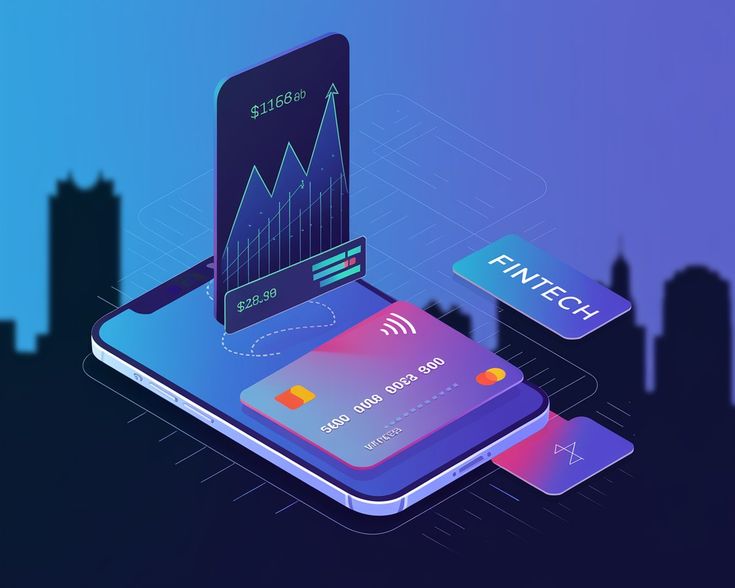
The future is digital, and Nigeria is rapidly proving that with its booming fintech ecosystem.
Fintech innovations, mobile money adoption, and digital lending are reshaping how Nigerians access and use financial services.
As we head into 2025, a new era of payments is emerging, driven by technology, regulation, and the urgent need for inclusion.
Market Expansion and Digital Payment Adoption
The adoption of digital payments in Nigeria has experienced remarkable growth, with penetration rates increasing from 23% to 46% over the past eight years. This surge is indicative of a broader shift towards cashless transactions, driven by the proliferation of mobile devices and internet connectivity.
The ₦71.5 trillion processed in mobile transactions in 2024 is further evidence that the future is digital.
Technological Innovations Shaping Financial Services
Artificial Intelligence (AI) Integration
Fintech companies are increasingly leveraging AI to enhance customer experiences and operational efficiency. AI algorithms facilitate personalised financial services, including tailored investment advice and customised loan offerings, based on individual user behaviour and preferences.
Additionally, AI-driven risk management systems analyse transaction data in real-time, effectively identifying and mitigating potential fraudulent activities.
This technological integration not only bolsters security but also promotes financial inclusion by extending credit access to individuals without traditional credit histories.
Rise of Contactless Payments
The adoption of contactless payment methods is gaining momentum, with fintech platforms moving towards biometric authentication, such as facial and fingerprint recognition, to streamline payment processes.
This shift aligns with consumer preferences for convenient and secure transaction methods, reducing reliance on physical payment cards and point-of-sale (POS) terminals.
The trend towards device-less payments is expected to become more prevalent, offering users seamless financial interactions through mobile applications.
Digital Lending and Buy Now, Pay Later (BNPL) Services
The demand for credit services is being met through innovative digital lending platforms and BNPL options. These services utilise AI-enhanced analytics to make data-driven lending decisions, extending credit to a broader segment of the population.
The expansion of agent banking networks further supports financial inclusion, providing essential services to rural and underserved communities, thereby bridging the gap between urban and rural financial access.
Regulatory Developments and Strategic Initiatives
Introduction of AfriGo Pay
In a move to bolster the domestic payment infrastructure, the Central Bank of Nigeria (CBN), in collaboration with the Nigeria Inter-Bank Settlement System (NIBSS), launched AfriGo Pay in January 2023.
As Africa’s first national domestic card scheme, AfriGo Pay aims to enhance the cashless economy and promote financial inclusion by offering additional options alongside international card schemes like Mastercard, Visa, and Verve.
The initiative is part of a broader strategy to provide innovative, cost-effective, and competitive payment solutions within the Nigerian market. eNaira: Nigeria’s Digital Currency Initiative
Government-backed initiatives like eNaira and AfriGo Pay confirm that the future is digital, even from a policy standpoint.
Launched in October 2021, the eNaira represents Nigeria’s foray into central bank digital currencies, positioning the naira for the digital economy. While initial adoption rates were modest, with fewer than 0.5% of Nigerians utilising the eNaira within the first year, efforts continue to address challenges such as technological infrastructure, electricity reliability, and public trust.
As more Nigerians adopt mobile wallets and digital banking, it’s evident that the future is digital, and it’s inclusive.
Ongoing initiatives aim to enhance the eNaira’s utility, aiming to increase its adoption and integration into the nation’s financial system.
Future Outlook: Trends to Watch
Expansion of Digital Remittances
Africa is witnessing a significant surge in digital remittance services, with startups like Nala and Flutterwave leading the charge to reduce transaction costs and enhance service delivery.
Despite these advancements, Sub-Saharan Africa remains the most expensive region for remittance transfers, with average fees around 8.37%, exceeding the global target of 3% set for 2030.
Addressing these costs presents a substantial opportunity to enhance the efficiency of remittance flows into the continent.
Launch of Pan-African Currency Exchange Platform
The Pan-African Payments and Settlement System (PAPSS), supported by 15 central banks, is set to introduce an African currency market platform. This initiative aims to facilitate direct currency exchanges between African nations, bypassing traditional intermediaries like the US dollar.
The platform is expected to enhance trade efficiency, mitigate currency volatility, and strengthen economic ties across the continent.
Conclusion
With innovation outpacing traditional systems, there’s no denying that the future is digital in Nigeria.
Stakeholders are presented with a dynamic landscape rich with opportunities to engage in a rapidly evolving market that promises substantial returns and contributes to the broader goal of financial inclusion and economic development.
In summary, the future is digital, and Nigeria’s fintech ecosystem is well-positioned to lead the continent forward.
Contact Cloud Technology Hub for a strategy consultation, or subscribe to our newsletter for more tips.






